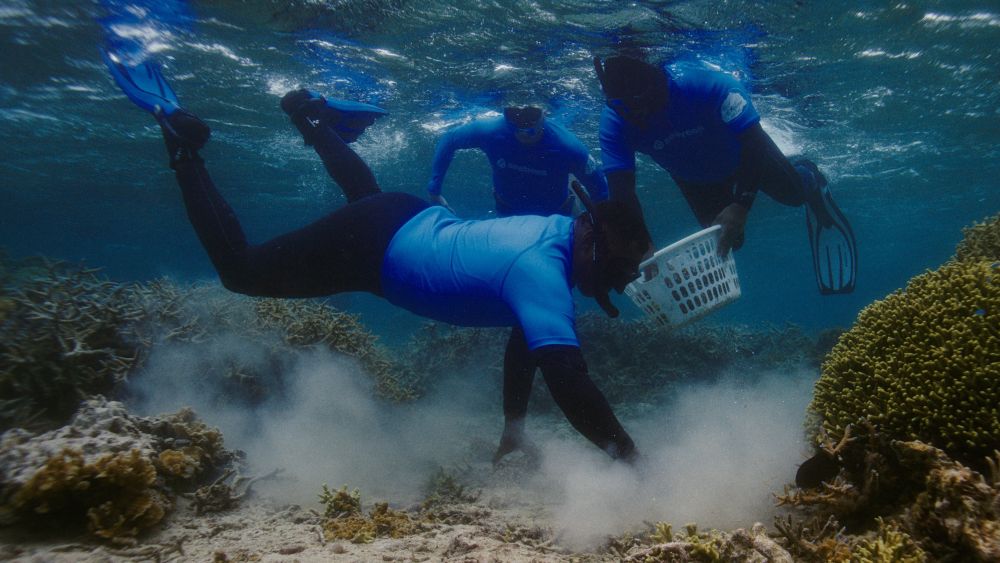Samsung Electronics has announced a groundbreaking initiative to reinforce its commitment to protecting the world’s oceans. In collaboration with the nonprofit organization Seatrees, Samsung is launching a project aimed at restoring damaged marine ecosystems. Building on its previous efforts—such as recycling discarded fishing nets into materials for Galaxy devices—this new partnership focuses on rehabilitating coral reefs affected by climate change and pollution. Samsung will leverage its mobile technology to support local communities and experts in their coral restoration efforts while raising awareness about the challenges facing these vital ecosystems.
Since the launch of the Galaxy S22 series in 2022, Samsung has incorporated recycled “ghost nets” into its products, reducing plastic waste and its harmful impact on marine life, and establishing Samsung as a leader in sustainable mobile device manufacturing.
“We initiated our commitment to the world’s oceans when we transformed discarded fishing nets into key components of the Galaxy S22 series, which to date, has incorporated more than 150 tons of discarded fishing nets into key components of Galaxy devices,” said Stephanie Choi, EVP & Head of Marketing of Mobile Experience Business at Samsung Electronics. “This year, we are furthering our commitment to the oceans by creating purposeful technology that helps protect and restore damaged marine ecosystems around the world.”
This latest initiative with Seatrees seeks to explore innovative solutions for coral reef restoration. By equipping researchers and activists with Galaxy devices featuring advanced camera technology, Samsung enables precise monitoring of restoration progress
Together, with Seatrees, Samsung is giving new purpose to Galaxy technology to further innovative solutions that improve the health of the world’s oceans. The company is supporting non-profits and local community members working in Fiji, Indonesia and the United States with Galaxy technology to help restore coastal ecosystems. By leveraging mobile technology, these organizations aim to democratize and to create a more efficient process for coral restoration in reefs damaged by climate change, overfishing and ocean pollution, such as discarded fishing nets.
An Innovative Approach to Reef Monitoring and Restoration
Despite covering less than 1 percent of the ocean floor, coral reefs support approximately 25 percent of all marine life, making them one of Earth’s most biodiverse ecosystems. People around the world also rely on reefs as a source of food, income and coastal protection. At the current pace of decline, reefs are at risk of disappearing by 2050.To support the rapid development of coral reef stewardship projects globally, this initiative will provide advanced monitoring technology that leverages mobile devices as a readily-accessible technology platform.
While efforts to revive coral reefs have existed for decades, researchers are seeking new ways to improve this process. Scientists from UC San Diego’s Scripps Institution of Oceanography and local communities use photogrammetry to collect a variety of data – including photographs of coral – to analyze the health and growth of reefs. This allows them to then develop 3D models of the reef, helping researchers identify appropriate interventions that mitigate the effects of climate change on the corals.
Accurate data is essential to researchers gaining a deeper understanding of how coral restoration efforts are affecting the reefs, and therefore help protect a greater number of reefs around the world. However, capturing accurate and vivid photos of coral reefs is not a simple task. Images can suffer from mo…


